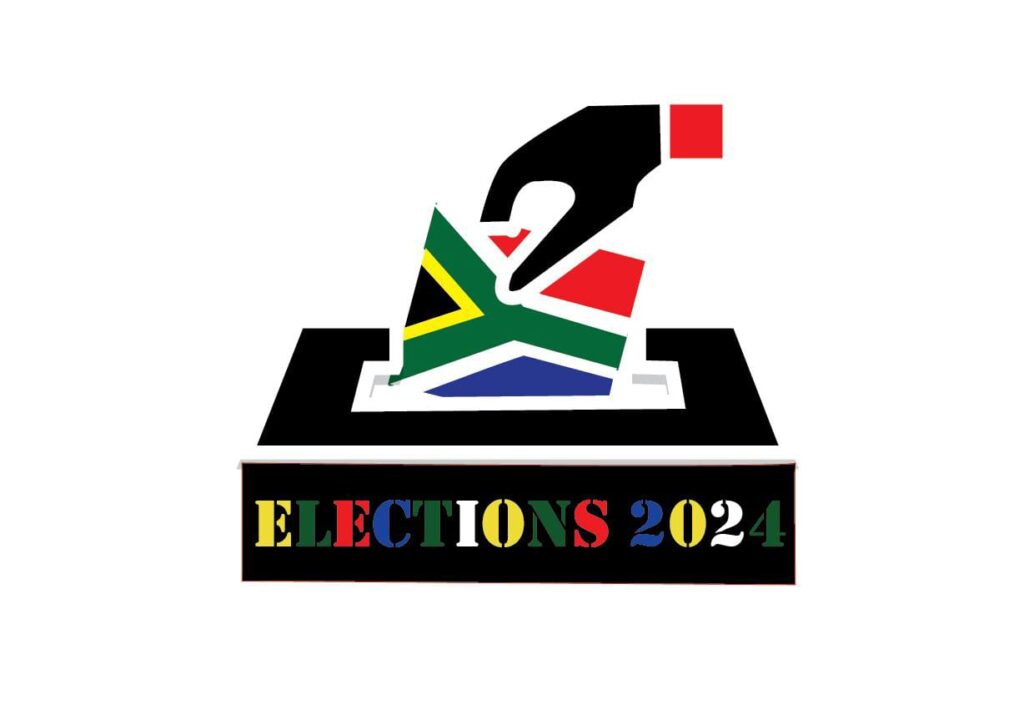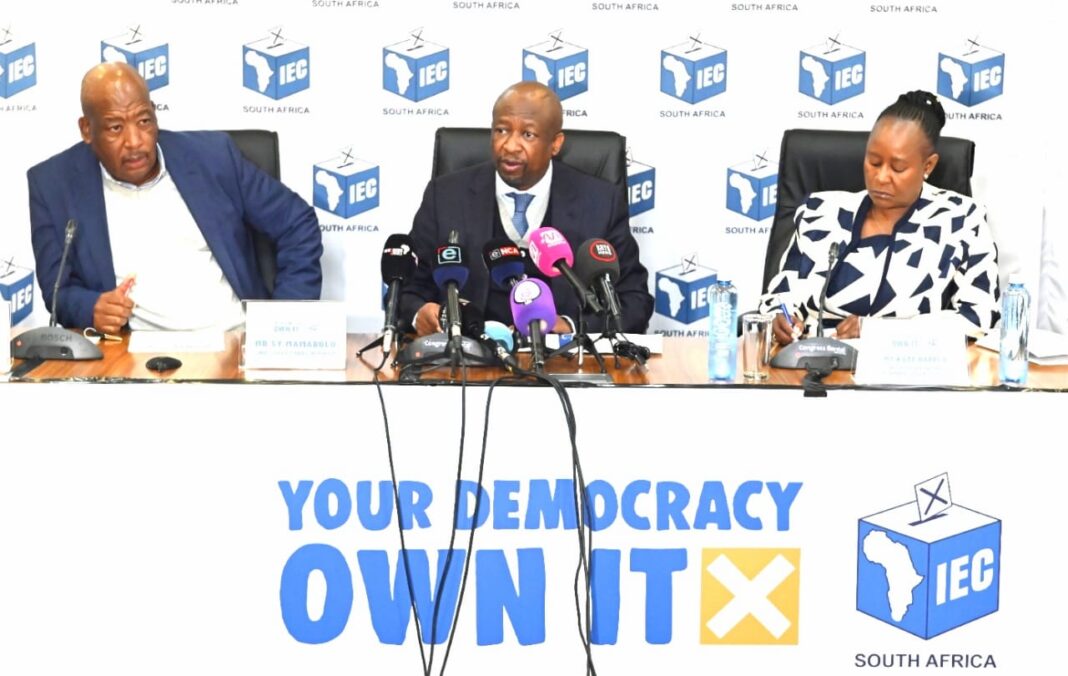Johnathan Paoli
THE Independent Electoral Commission of South Africa (IEC) has confirmed the near finalisation of the list of candidates and said the ballot could be printed after the resolution of some last minute issues.
The IEC’s top executives briefed the media on Tuesday, and covered special vote applications, the list of voting stations, notification to vote out of country, and a breakdown of candidates contesting elections on the 29th of May.
Electoral Commission CEO Sy Mamabolo confirmed that on April 12, the commission issued certificates to over 14 000 candidates who will contest, with 70 political parties and 11 independent candidates.
Mamabolo said there were 15 political parties which were contesting the elections on all tiers, 31 political parties who are contesting the national elections for the first time; and that out of the candidates 58.14% (8 658) were male, while 41.86% (6 234) were female.
The CEO outlined the obligations of the commission under section 68 of the Electoral Act, which awarded the commission broad ranging powers to determine the look and feel of the ballot paper and that in conjunction with the Human Sciences Research Council, a picture of the leader of the party was utilised as one of the main identifiers.
“The commission has decided that the ballot paper will be underpinned by the following – full name of the party, abbreviation, the logo, and picture of the party leader,” Mamabolo said.
Mamabola said the commission was taking the appeal to the Constitutional Court, based on the order of the Electoral Court and not its judgement, which is still to be released in full on the former President Jacob Zuma and MK party issue.
He raised main concerns emanating out of the order, including whether the commission went beyond its scope and authority in invoking section 47(1)(e); and whether the remission of a sentence, after judgement, amounted to the reduction of the sentence passed by a court of law at the time of judgement.
The CEO said clarity in relation to these matters remained important not only for the current confusion surrounding Zuma’s eligibility, but more importantly, was critical in determining problems in the future.
Deputy Chief Electoral Officer Masego Sheburi distinguished the difference between the MK party and the IFP, and said that the latter’s use of former party leader Mangosuthu Buthelezi on campaign posters should not be confused for the picture of the party’s current leader Velenkosini Hlabisa which will be used on the ballot paper.
“We can confirm that the face that will be on the ballot for the MK Party is Jacob Zuma, and is no longer Jabulani Khumalo as the party confirmed to the commission that Zuma and not Khumalo is the party leader,” Sheburi said.

Interestingly, Sheburi admitted to the commission not having the concrete mechanisms to verify the details and authenticity of the amount of signatures required in relation to the registration of a political party or independent candidate.
When asked about the verification processes surrounding the requirement of signatures in the registration of candidates and parties, Sheburi said that there was a two-step process in dealing with this requirement, namely the submission of the required identification numbers, and a submission by means of hard-copy of the matching signatures, with the amount of the former being checked in relation to the amount of the later.
The deputy CEO said that while the commission had no repository of signatures, it did provide a window period, in which all concerned parties had the opportunity to check and verify all the documents, including the signatures.
Following calls, mainly from the MK party, for the removal of Commissioner Janet Love, and allegations of her continuing membership of the ANC and displays of bias; Sheburi said that it was not a matter the commission, nor Love herself, was currently considering, especially in light of the absence of any substantial evidence to prove the claims.
Sheburi said that while the law required any prospective commissioner not to have a high political profile at the time of appointment, there was no legal obligation to disclose party affiliations, and that doubt should be disregarded in light of the multi-leveled vetting process involved in appointing a new commissioner, which included verification by both the Chief Justice as well as the National Assembly.
INSIDE POLITICS

